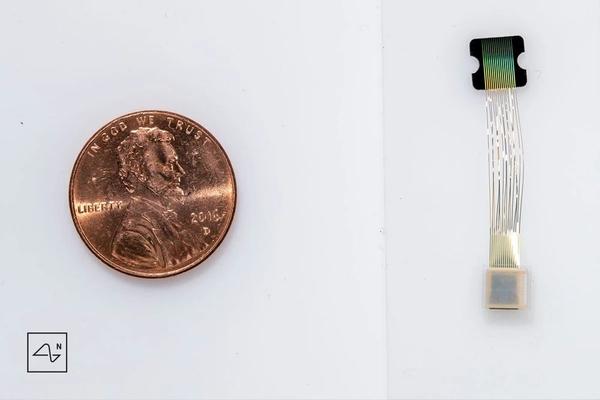Kathy Lueders, the first woman to lead NASA’s human spaceflight program, will helm the agency’s return to the moon.



Do you have what it takes?
Key Point: It takes a rare individual to muster the physical endurance, mental adaptability and sheer ambition to qualify.

The U.S. Navy confirmed a fire on vessel USS Bonhomme Richard in San Diego, Calif., that happened while routine maintenance was underway. July 12, 2020.
NBC News: Several sailors injured after apparent explosion and fire on a military ship in San Diego, according to San Diego Fire-Rescue authorities.


Synthetic self-fuelled motors, which can spontaneously convert chemical energy into mechanical activity to induce autonomous locomotion, are excellent candidates for making self-powered machines, detectors/sensors, and novel robots. The present lab (Zhang et al. in Adv Mater 27:2648–2655, 2004 [1]). discovered an extraordinary self-propulsion mechanism of synthetic motors based on liquid metal objects. Such motors could swim in a circular Petri dish or different structured channels containing aqueous solution with a pretty high velocity on the order of centimeters per second, and surprisingly long lifetime lasting for more than one hour without any assistance of external energy. The soft material liquid metal enables the motors to self-deform, which makes them highly adaptable for accomplishing tough missions in special environment. Interestingly, the motors work just like biomimetic mollusk since they closely resemble the nature by “eating” aluminum as “food”, and can change shape by closely conforming to the geometrical space it voyages in. From practical aspect, one can thus develop a self-powered pump based on the actuation of the liquid metal enabled motor. Further, such pump can also be conceived to work as a cooler. Apart from different geometrical channels, several dominating factors, including the volume of the motor, the amount of aluminum, the property of the solution and the material of the substrate etc., have been disclosed to influence the performance of the autonomous locomotion evidently. This artificial mollusk system suggests an exciting platform for molding the liquid metal science to fundamentally advance the field of self-driven soft machine design, microfluidic systems, and eventually lead to the envisioned dynamically reconfigurable intelligent soft robots in the near future. In this chapter, the typical behaviors and fundamental phenomena of the self fuelled transformable liquid metal machines were illustrated.

The Chief Executive Officer of SpaceX and Tesla, Elon Musk, founded Neuralink, a company that is developing a brain-machine interface that could one day restore a variety of brain-related issues, including restoring eyesight and limb functionality, solve memory loss, even cure depression via a brain chip implant. Musk initially aims to focus on the medical aspect of the neural interface, like solving mobility issues with paralyzed individuals. Ultimately, his team aims to achieve ‘symbiosis’ with Artificial Intelligence (AI).

The center of our very own galaxy might be one of the Universe’s most mysterious places. Astronomers have to probe through thick dust to see what’s going on there.
All that dust makes life difficult for astronomers who are trying to understand all the radiation in the center of the Milky Way, and what exactly its source is.
A new study based on 20 years of data – and a hydrogen bubble where there shouldn’t be one – is helping astronomers understand all that energy.

Researchers at ETH have measured the timing of single writing events in a novel magnetic memory device with a resolution of less than 100 picoseconds. Their results are relevant for the next generation of main memories based on magnetism.
At the Department for Materials of the ETH in Zurich, Pietro Gambardella and his collaborators investigate tomorrow’s memory devices. They should be fast, retain data reliably for a long time and also be cheap. So-called magnetic “random access memories” (MRAM) achieve this quadrature of the circle by combining fast switching via electric currents with durable data storage in magnetic materials. A few years ago researchers could already show that a certain physical effect – the spin-orbit torque – makes particularly fast data storage possible. Now Gambardella’s group, together with the R&D-center IMEC in Belgium, managed to temporally resolve the exact dynamics of a single such storage event – and to use a few tricks to make it even faster.
Magnetizing with single spins.

Nelson Dellis is a four-time USA Memory Champion and Grandmaster of Memory. Some of his feats of recollection include memorizing 10,000 digits of pi, the order of more than nine shuffled decks of cards, and lists of hundreds of names after only hearing them once.
But with a little dedication, Dellis says that anyone can improve their memory. Here are five steps to follow that will get your filling your head with information.
1. Start With Strong Images

Team with NASA to send off the Perseverance rover to Mars — from the convenience of your own home. The mission launches from Cape Canaveral, Florida, this summer, and you’re invited to participate remotely — with a global, collective launch countdown where you can submit your own videos, take a photo on Mars or next to the rover, dive into an interactive launch packet, and sign up to send your name to Mars on a future space mission.
After a seven-month journey to the Red Planet, the rover will land in Jezero Crater, an ancient lakebed with intriguing geology. In its search for astrobiological evidence of ancient microbial life, Perseverance will gather rock and soil samples there for future return to Earth. It will also characterize the planet’s climate and geology and pave the way for human exploration of the Red Planet.
In addition, Perseverance carries the Ingenuity Mars Helicopter, a technology demonstration that marks the first attempt at powered, controlled flight on another planet.